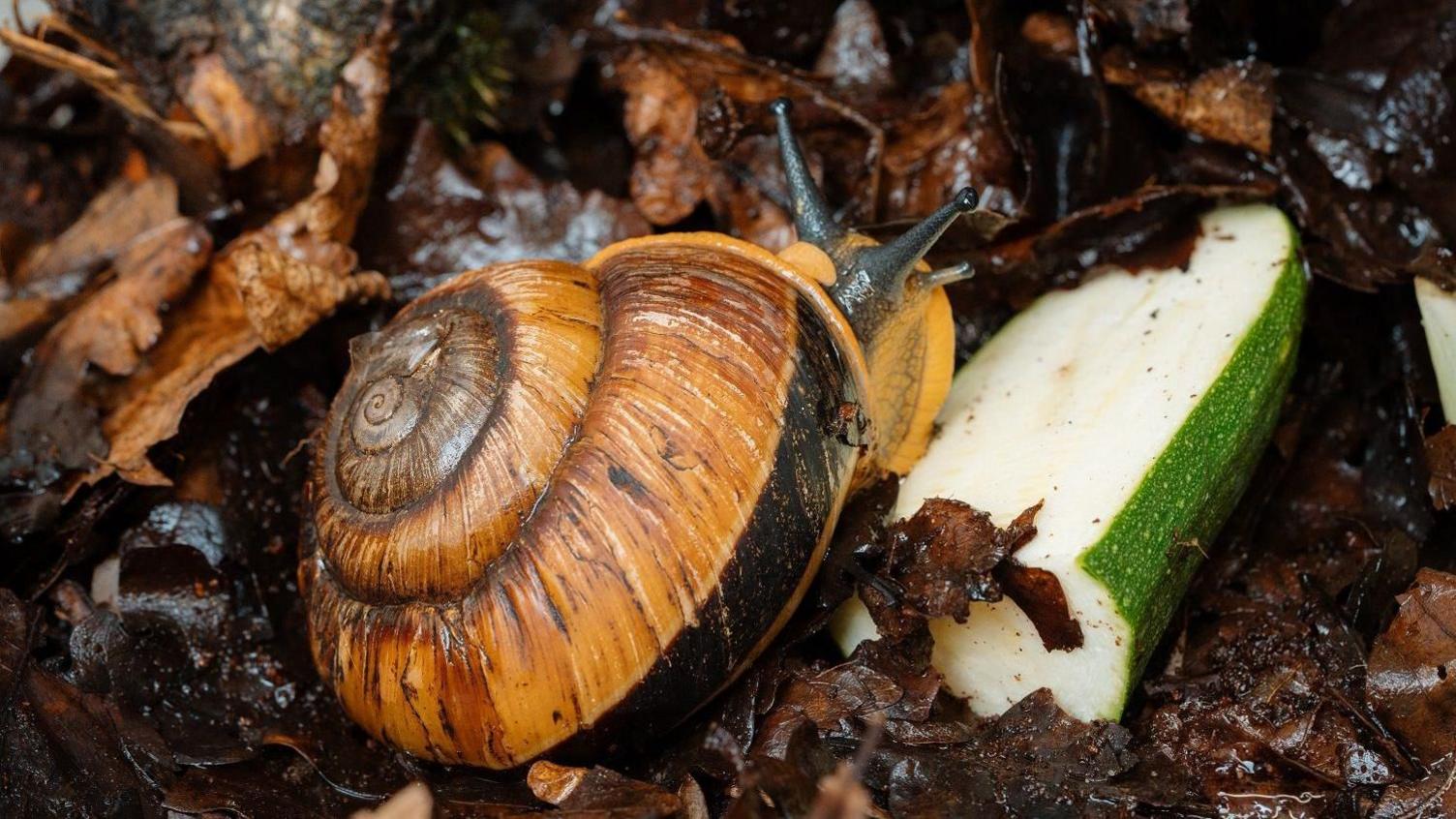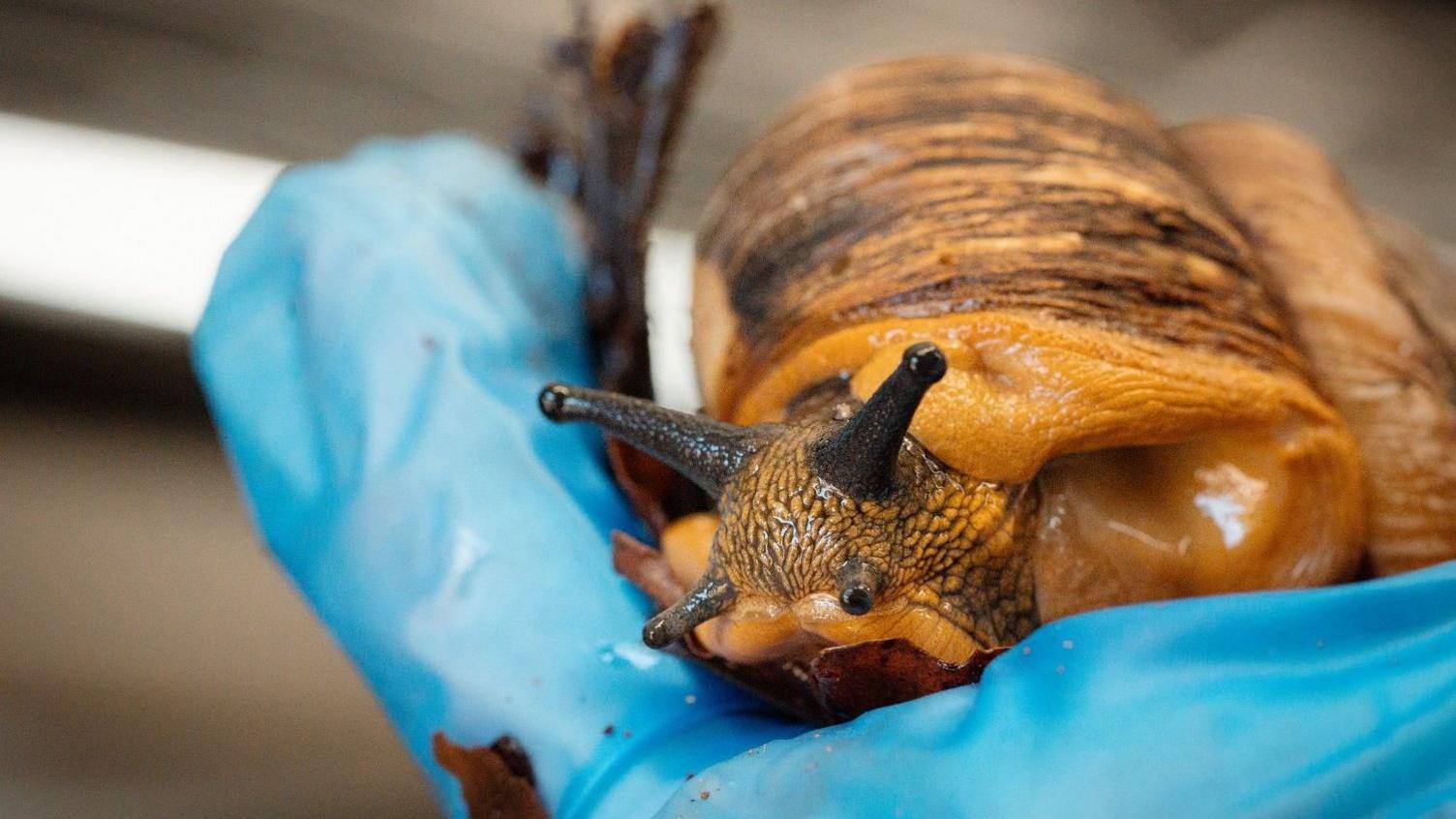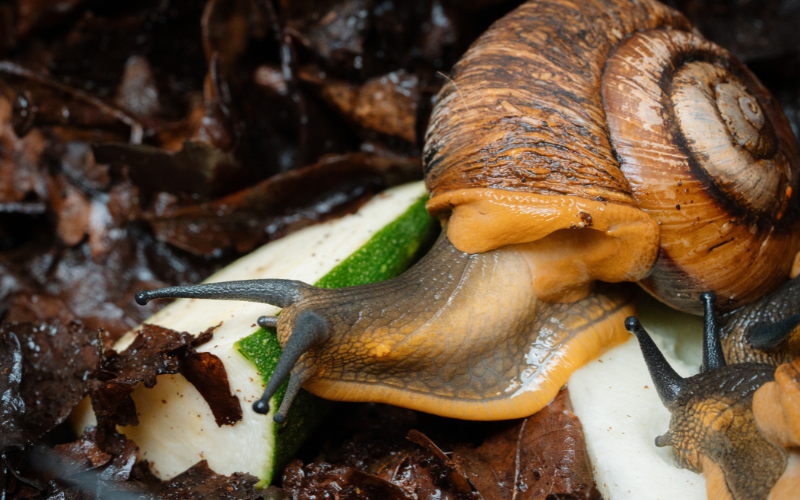Slimey survivors arrive at safari park

- Published
Say 'hello' to one of the rarest creatures in the world.
These critically-endangered snails have arrived at a UK safari park, where conservationists hope they will breed.
Eight giant magnolia snails, which can grow up to 6.5cm long, are settling into their new home at Longleat, Wiltshire.
Experts believed the creature was extinct until they were re-discovered in southern Vietnam in 2012.
They are so rare, there are thought to be only about 300 left in the world.
More rare wildlife
Guide: What are endangered species?
- Published9 June 2022
Mouse-deer and other animals back from brink of extinction
- Published21 November 2019
1,300 tiny endangered snails released on remote Atlantic island
- Published29 December 2024

Longleat keeps them in a special protective environment, each with an ID tag, at temperatures of 23C to 27C.
Keeper Samantha Peeke said: "The biggest threat to their survival is being used for food and the shell trade. We are hoping they will start breeding, which will be incredible for the species."
While not much is known about what they eat in the wild, Ms Peeke said they are being given lots of fruit and vegetables, with "mango being a favourite".
"They are weighing in at around 100 grams with our biggest 66mm and are two and a half years old," she explained.
"They are beautiful animals and having them at Longleat is wonderful as we can show our guests how we care for all animals, whatever their size," Ms Peeke added.
Fact file

The giant magnolia snail was thought to be extinct before living specimens were found in southern Vietnam in 2012.
Their official name is Bertia cambojiensis.
Classified as critically endangered, there are thought to be as few as 300 of in the world.
Unlike most snails this one is a a left-coiling snail, meaning its shell swirls clockwise; in most snails the shell coils to the right.
Giant magnolia snails don't have ears.
Facts courtesy of Longleat Safari Park
